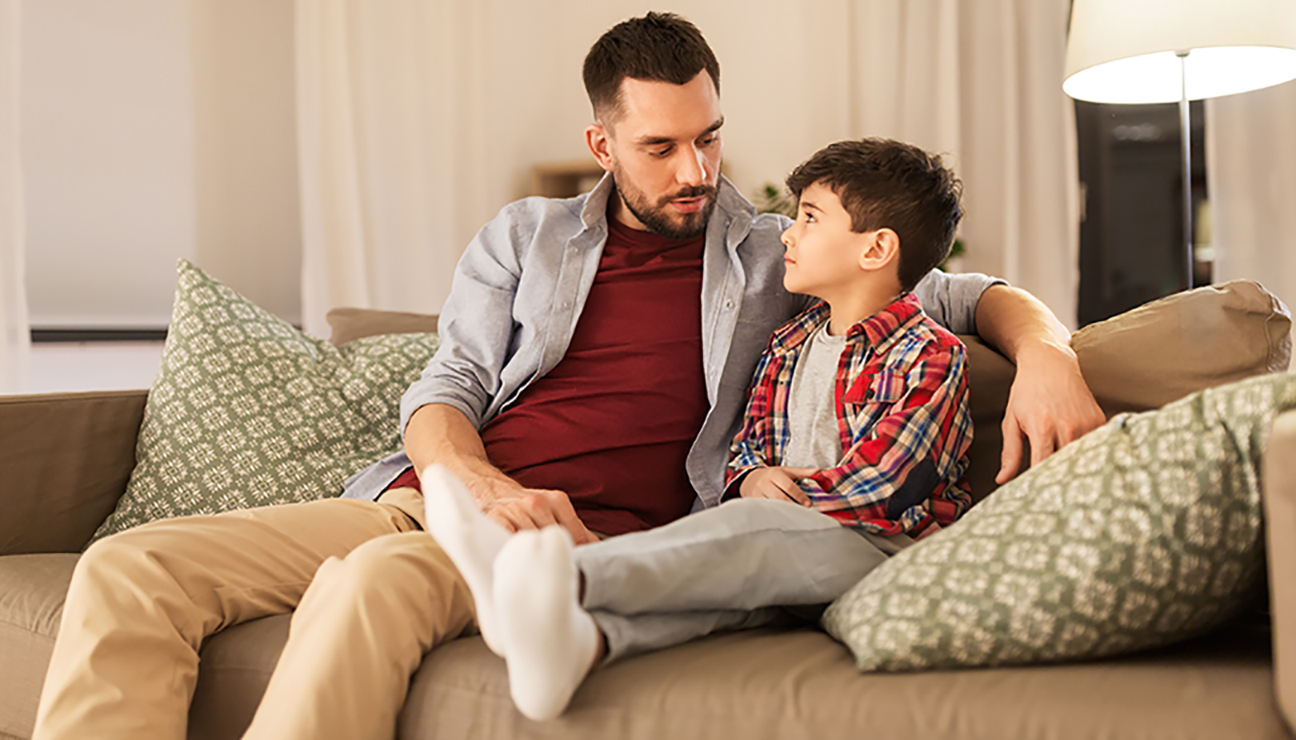
Community

Don’t hide the truth of war from kids
Between images of bombed buildings, desperate refugees and injured soldiers and civilians, it’s easy to see why our children may be distressed by the war in Ukraine. Though our instinct is to protect them, it’s by having those tough but age-appropriate conversations that we can really help our children process what’s happening.
Regardless of your child’s age, when it comes to addressing questions about the war in Ukraine, honesty is vital, says Pam Tudin, clinical psychologist and co-founder of Klikd, which provides an app and solutions for parents, teens and tweens to use social media safely and responsibly.
For example, if you promise your child who has been involved in a hijacking that it will never happen again and it does, the trust they have in you is undermined. “It’s hard to undo that. If children have our honesty and they feel our authenticity, it actually creates a greater degree of safety than hiding the truth.”
Megan Kelly Botha, a mother of a four and eight-year-old, agrees. She and her husband have been as upfront about the war as possible with their children, especially since a close family friend was forced to leave Kyiv just last week. “He plays Fortnite with my kids, he has been there on our best and worst days, so you can imagine our fears,” she says.
“What I have learnt though – through the pandemic and now the war – is that there’s no use in lying to our kids. We’ve always tried to be as honest as possible and make them understand that it’s okay to be scared, angry, hurt and frustrated. Those feelings need space and trying to reassure them that everything is okay leads to them to believe that we’ve got to act like it’s okay when, really, we’re falling apart. It has meant my kids feel safe enough to tell me they’re scared, which has then prompted conversations about those fears. I don’t pretend to have all the answers – the pandemic was proof of that – but I can remind them that we’re in this together.”
However old they are, our children will probably be exposed to the war in some way, so it’s impossible and ill-advised to try to shelter them completely. “Our job isn’t to protect them from everything, our job is to engage them about everything,” says Tudin. “They will come upon dangers in the world all the time. If we’re engaged parents who are in dialogue with our kids, then their biggest safety net is our degree of open communication with them.”
That’s why Tali Barnett, the mother of seven-year-old twins decided to pre-empt her sons’ questions. “My kids have always been interested in geography, so when Russia invaded, I knew they would pick up on it quickly,” she says. “Instead of waiting for them to ask, I decided to avoid any confusion by telling them about it in a gentle way. I told them Russia had invaded Ukraine, which means that Russia is like a child saying they want more and just taking what they want.
“I’ve tried to balance reality without them getting too scared. So, I’ve told them people had to leave their homes, but they have been welcomed in other countries. It’s better that they’re informed in a way parents feel comfortable with than if they come across information by chance.”
If our children get scared and fixate on the war, we need to get to the root of their anxiety, says Tudin. “Sometimes kids will see an image or hear about something that they try to make sense of. Try to find the trigger. If we help them by talking through it, really listening to what they saw and putting it into context by explaining how Ukraine is many miles away and, while it’s tragic and painful, our job is to keep them safe and right now, we are safe, that should be enough to undo the imagery. If more extreme symptoms like separation anxiety arise and persist, then seek out professional input because then other issues are possibly being triggered.”
When it comes to teenagers, mass exposure to information, whether it be through memes, TikTok videos, or other forms of social media, is inevitable. It’s important to understand how they react to this. “Developmentally, adolescents are creating their own identities, values and opinions,” says educational psychologist Lee-Anne Lewis. “Create open dialogue with your teenagers about the war in order for them to cultivate their own perceptions and opinions. Reflect on their emotions that may include anything from anger to frustration.”
With teens, it’s vital to address the issue of propaganda and fake news, says Tudin. Open a conversation about propaganda, which is rife on both sides during times of war. “Ask what they think the agenda of both sides is, and how they’re managing to discern truth from fake news. Klikd provides many resources here. Those forms of engagement are far more helpful than trying to put blinkers on our teens, who invariably don’t want blinkers. They want to try and understand their world.”
Mother Lee Herridge feels that parents should explain media bias to younger children too, albeit at an age-appropriate level. “My nine-year-old daughter came home from school, and it seemed that the message she was getting there was that Russia is the big bad wolf,” she says. “For me, it was important to explain that it’s a bit more complicated than that, it’s not black and white, even though the media paints it that way because it’s a compelling narrative. There are different perspectives, and not all Russians are bad or supporting the invasion – a lot of Russians are protesting the war.
“On the flipside, though, when you’re trying to explain the complexities of war, young kids tend to switch off and change the subject – it’s a bit too much for them. As long as they understand that it’s not as clear as bad versus good, that’s enough.”










